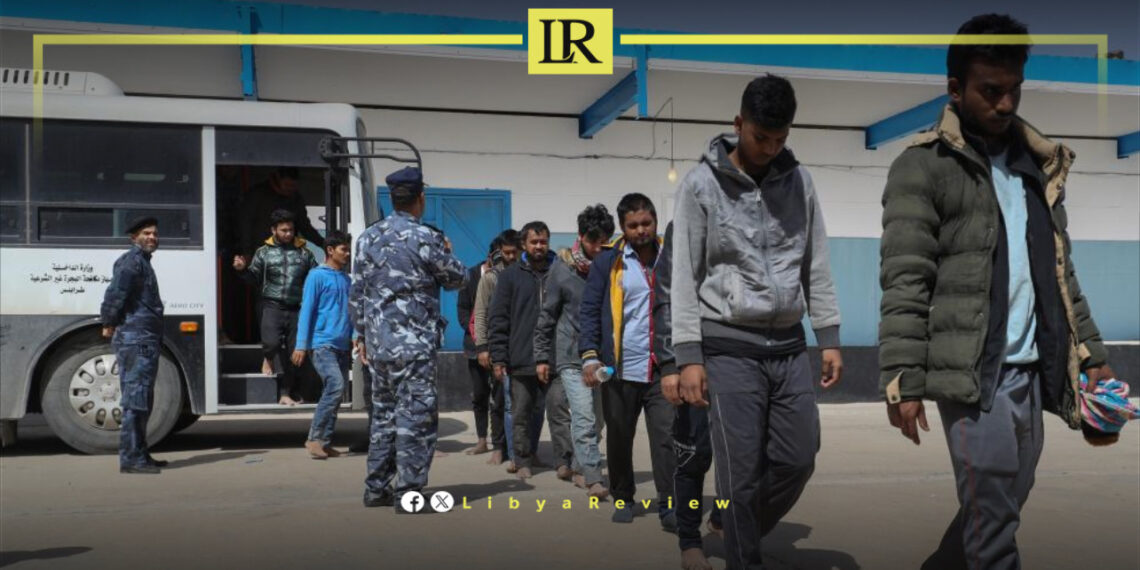Libyan authorities have taken significant steps to address irregular migration by transferring 164 migrants from the Qanfouda Detention and Deportation Center in Benghazi to the capital, Tripoli, to complete their deportation procedures. The group includes 135 Nigerians, eight Ghanaians, 16 Eritreans, and five Somalis, according to the Ministry of Interior.
This move is part of a broader strategy by Libya’s Anti-Illegal Immigration Agency to streamline repatriation processes, ensure compliance with migration laws, and enhance coordination between its branches in various cities. Officials aim to reduce reliance on detention centers by accelerating procedures and ensuring that migrants are returned to their home countries in a timely manner.
In a separate operation near Tobruk, security forces intercepted a fishing vessel carrying 15 migrants from Sudan and Pakistan. The operation followed a tip-off from a local resident about unusual activity off the city’s coast. The migrants were detained and are undergoing legal procedures for repatriation.
As a major transit point for migrants seeking to cross the Mediterranean into Europe, Libya has ramped up its efforts to manage irregular migration. These include cracking down on smuggling networks, increasing coastal patrols, and working with international partners to secure borders. While these measures have been praised for their effectiveness, human rights organizations have raised concerns about the conditions in Libyan detention centers and the treatment of migrants.
Libya’s government has stressed its commitment to adhering to legal frameworks and ensuring humane treatment during repatriation processes. Officials have also urged international partners to address the root causes of migration, such as poverty, conflict, and instability in origin countries.
This latest development highlights Libya’s dual challenge of enforcing migration laws while addressing the humanitarian needs of vulnerable populations. The government continues to call for greater international cooperation to address the complex dynamics of migration in the region.


